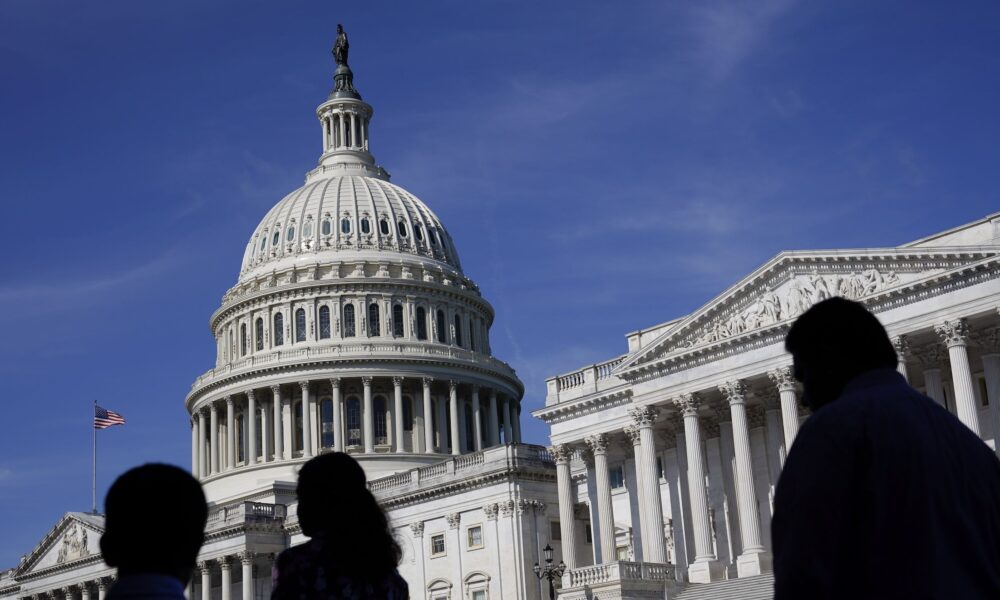Regulation
Landmark crypto regulation bill passes House in bipartisan vote

The House voted to adopt bipartisan legislation to create a regulatory framework for cryptocurrencies.
THE Home voted 279-136 to approve the long-awaited bill, which now heads to the Senate, where its prospects are uncertain. The Financial Innovation and Technology for the 21st Century Act, known as FIT21aims to provide regulatory clarity for digital assets and protect consumers and investors.
House Financial Services Committee Chairman Patrick McHenry (R-NC) was a co-sponsor of the bill and said FIT21 is “the culmination of years of bipartisan efforts to finally provide clarity “. He said it would reduce some of the regulatory uncertainty that has hurt the cryptocurrency world.
“This legislation will solidify U.S. leadership in the global financial system for decades to come and strengthen our role as an international hub of innovation,” McHenry said. “I look forward to taking a monumental step to finally provide the transparency, accountability, and consumer protections that the digital asset ecosystem desperately needs.”
The bill gives the Commodity Futures Trading Commission new regulatory jurisdiction over digital products and further clarifies the Securities and Exchange Commission’s authority over cryptocurrencies offered as part of an investment contract.
The legislation would give the CFTC regulatory authority over digital assets with functional but decentralized blockchains, meaning no individual or entity has “unilateral authority” to control the operation or access to the blockchain. For example, bitcoin, the most widespread cryptocurrency, would fall into this category.
On the other hand, the SEC would gain regulatory authority over digital assets if its “associated blockchain is functional but not decentralized,” according to the Congressional Research Service. So, for example, digital assets held by crypto exchanges that hold a significant stake themselves would fall under SEC oversight.
The legislation would also establish a process to allow secondary market trading of digital products if they were first offered as part of an investment contract. It further imposes “comprehensive customer disclosure, asset protection, and operational requirements” on entities that must be registered with the CFTC or SEC.
Developers of digital assets and cryptocurrencies must be required to provide accurate and relevant information on ownership and structure. Additionally, entities such as exchanges and brokers would be required to provide important information to customers.
“Our collaborative effort establishes the essential clarity and certainty needed to foster innovation and ensure our nation’s pre-eminence in the global technological revolution,” said Glenn Thompson, Chairman of the House Agriculture Committee.
The bill received support from outside crypto groups and advocates for maintaining and growing the digital asset space.
Last week, the Crypto Council for Innovation sent a letter to House Speaker Mike Johnson and House Minority Leader Hakeem Jeffries urging House members to rally behind the legislation. Nearly 60 groups, including developers, start-ups and the largest crypto companies, signed the correspondence.
“By passing this legislation, we can accelerate the growth of blockchain technology and digital assets, thereby promoting financial inclusion and protecting national security,” the letter said. “It is crucial that the United States maintains its leadership in financial innovation. »
It’s unclear how the bill will fare in the Senate or whether President Joe Biden intends to sign it. The White House issued a statement Wednesday saying the bill lacks “sufficient protections for consumers and investors” but did not discuss the threat of a veto.
If signed into law, it will be the most comprehensive regulatory framework for the crypto industry created by Congress to date.
Speaking to reporters Tuesday before the vote, McHenry said the bill has likely gained more momentum and garnered more support in the past few months since its introduction. On the one hand, he said that more of his colleagues understand digital assets and their importance than in July last year.
“We have more real-world use cases for digital assets today than in July of last year,” McHenry added.
McHenry said that many countries around the world with which the United States competes have a more competitive regulatory regime and that American companies say they “would rather go to Europe and innovate” than do so at home. National level.
“What’s the stupidest, craziest thing I’ve heard.” We have never lagged behind Europe in innovation, at least not in the last 150 years,” the North Carolina congressman said.
In terms of movement in the Senate, Thompson said Thursday that the House has introduced a very comprehensive bill to begin with, which Republicans can pass in the House on a bipartisan basis.
CLICK HERE TO READ MORE FROM THE WASHINGTON EXAMINER
However, it is possible that the Senate will not be able to pass this bill in time for the elections. In this case, French Hill (R-AR), who leads the subcommittee on digital assets, said he had no doubt that this digital assets framework would be “a priority” for the committee action at the start of the next session of Congress.
“We built consensus and direction on a bipartisan basis from day one,” Hill told reporters.
